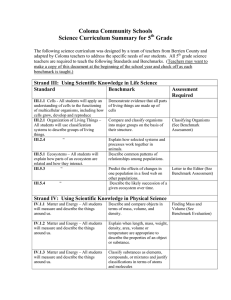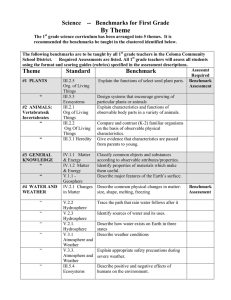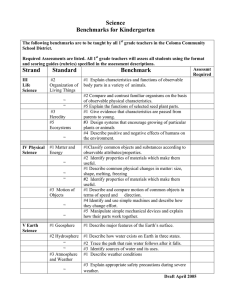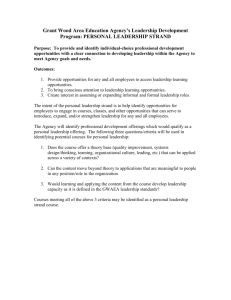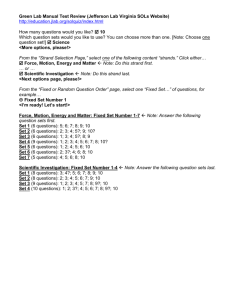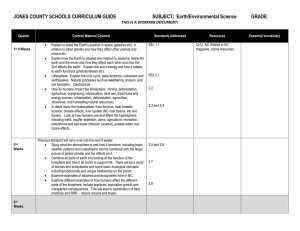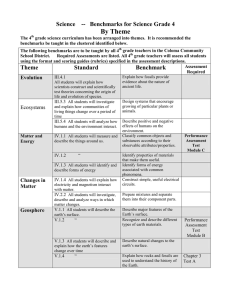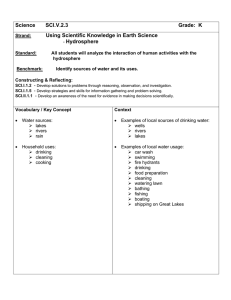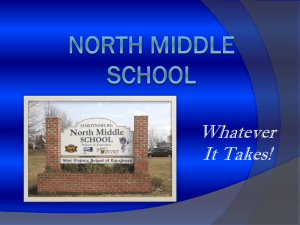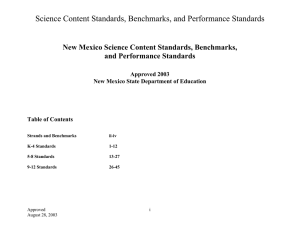Coloma Community Schools Science Curriculum Summary for 6 Grade Strand III:
advertisement
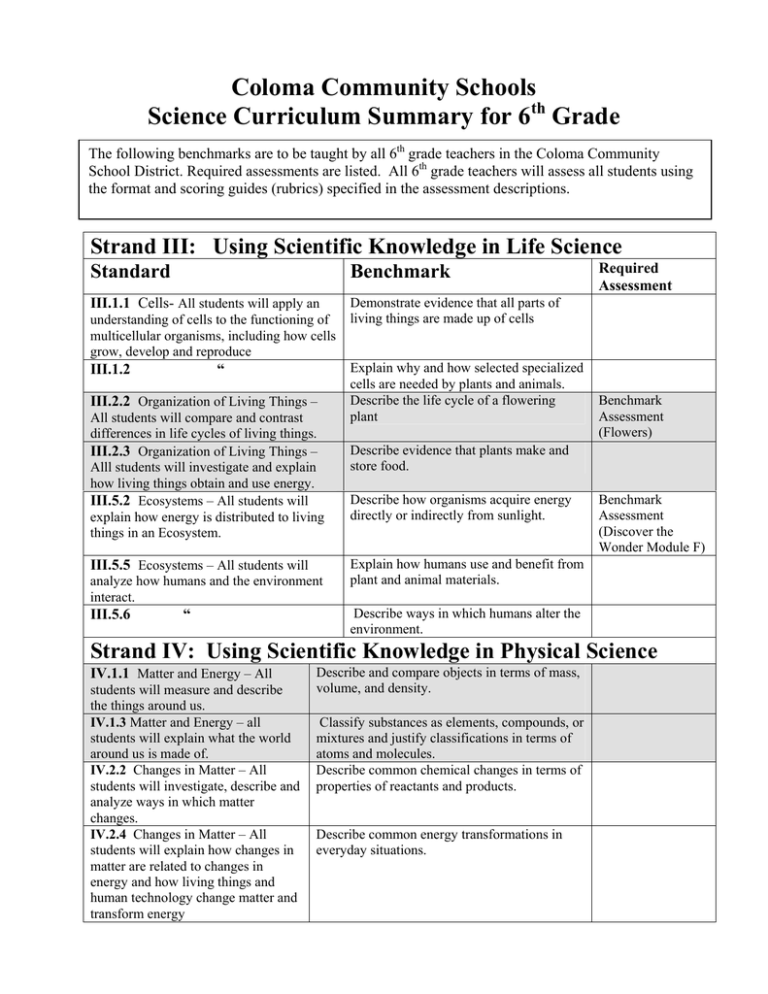
Coloma Community Schools Science Curriculum Summary for 6th Grade The following benchmarks are to be taught by all 6th grade teachers in the Coloma Community School District. Required assessments are listed. All 6th grade teachers will assess all students using the format and scoring guides (rubrics) specified in the assessment descriptions. Strand III: Using Scientific Knowledge in Life Science Standard Benchmark III.1.1 Cells- All students will apply an understanding of cells to the functioning of multicellular organisms, including how cells grow, develop and reproduce Demonstrate evidence that all parts of living things are made up of cells III.1.2 Explain why and how selected specialized cells are needed by plants and animals. Describe the life cycle of a flowering plant “ III.2.2 Organization of Living Things – All students will compare and contrast differences in life cycles of living things. III.2.3 Organization of Living Things – Alll students will investigate and explain how living things obtain and use energy. III.5.2 Ecosystems – All students will explain how energy is distributed to living things in an Ecosystem. Benchmark Assessment (Flowers) Describe evidence that plants make and store food. Describe how organisms acquire energy directly or indirectly from sunlight. III.5.5 Ecosystems – All students will analyze how humans and the environment interact. Explain how humans use and benefit from plant and animal materials. III.5.6 Describe ways in which humans alter the environment. “ Required Assessment Benchmark Assessment (Discover the Wonder Module F) Strand IV: Using Scientific Knowledge in Physical Science IV.1.1 Matter and Energy – All students will measure and describe the things around us. IV.1.3 Matter and Energy – all students will explain what the world around us is made of. IV.2.2 Changes in Matter – All students will investigate, describe and analyze ways in which matter changes. IV.2.4 Changes in Matter – All students will explain how changes in matter are related to changes in energy and how living things and human technology change matter and transform energy Describe and compare objects in terms of mass, volume, and density. Classify substances as elements, compounds, or mixtures and justify classifications in terms of atoms and molecules. Describe common chemical changes in terms of properties of reactants and products. Describe common energy transformations in everyday situations. Science Curriculum – 6th Grade (continued ) Page 2 Strand IV: Using Scientific Knowledge in Physical Science (continued) Standard Benchmark IV.3.1 Motion of Objects – All students Qualitatively describe and compare motion in two dimensions. will describe how things around us move, explain why things move as they do and demonstrate and explain how we control the motions of objects. IV.3.2 “ IV.3.4 “ IV.3.5 “ IV.4.3 Waves and Vibrations – all students will explain shadows, color and other light phenomena. IV.4.4 “ Relate motions of objects to unbalanced forces in two dimensions. Use electric currents to create magnetic fields and explain applications of this principle. Design strategies for moving objects by application of forces, including the use of simple machines. Explain how light is required to see objects. Describe ways in which light interacts with matter. Strand V: Using Scientific Knowledge in Earth Science describe the earth’s surface Describe and identify surface features using maps. V.2.1 Hydrosphere – All students will describe the characteristics of water and demonstrate where water is found on earth. Use maps of the earth to locate water in its various forms and describe conditions under which they exist. V.2.3 Hydrosphere – all students will analyze the relationships between human activities with the hydrosphere. V.3.3 Atmosphere and Weather – All students will explain what causes different kinds of weather. V.4.1 Galaxy and Universe – All students will compare and contrast our planet and sun to other planets and star systems. Explain how water exists below the earth’s surface and how it is replenished. V.1.1 Geosphere – all students will Explain the behavior of water in the atmosphere. Compare the earth to other planets and moons in terms of supporting life. Required Assessment Performance Test Over Force Chapter 4 Test (Simple Machines)
